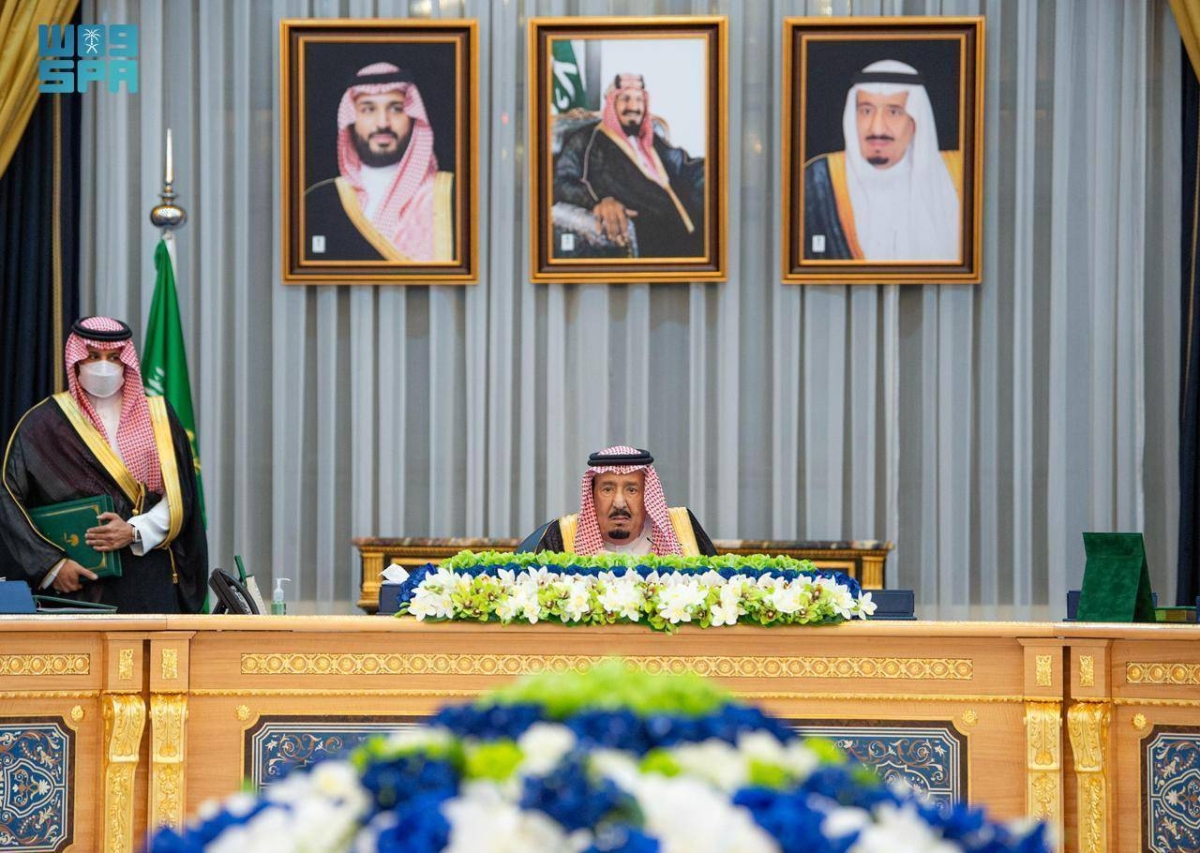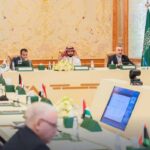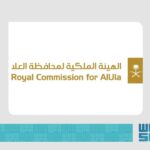The Cabinet expressed during its session held in Riyadh that the Kingdom of Saudi Arabia looks forward to the outcomes of the Sharm El-Sheikh Peace Summit hosted by the Arab Republic of Egypt to end the war in the Gaza Strip contributing to enhancing efforts to establish security and stability in the Middle East region, alleviating the humanitarian suffering of the Palestinian people, achieving full Israeli withdrawal, and initiating practical steps toward achieving just and comprehensive peace based on the two-state solution, embodying the independent Palestinian state within the 1967 borders with East Jerusalem as its capital.
At the beginning of the session, the Cabinet reviewed the content of messages exchanged with regional leaders.
The Cabinet reiterated its hope that the outcomes of the Sharm El-Sheikh Peace Summit hosted by Egypt to end the war in Gaza would contribute to enhancing efforts to establish security and stability in the Middle East region, alleviate the humanitarian suffering of the Palestinian people, achieve full Israeli withdrawal, and initiate practical steps toward achieving just and comprehensive peace based on the two-state solution, embodying the independent Palestinian state within the 1967 borders with East Jerusalem as its capital.
The Cabinet emphasized the necessity of an immediate cessation of war in Sudan, preserving its unity and institutions, sparing the country and its people further suffering and destruction, and implementing what was signed in the Jeddah Declaration of May 11, 2023.
The Cabinet then reviewed developments in the work of joint committees between the Kingdom of Saudi Arabia and several friendly countries, and the progress made in bilateral work paths aimed at strengthening relations and expanding cooperation horizons to achieve mutual interests and benefits in various fields.
The Cabinet discussed the results of the Kingdom hosting several international meetings and forums, praising in this context the success of the 25th Scientific Forum for Hajj, Umrah and Visit Research, which included innovative initiatives that will contribute to enhancing the quality of services provided to pilgrims.
The Cabinet considered the launch of the Regional Asset Recovery Network for the Middle East and North Africa as a practical step toward building an advanced system that enhances the capabilities of countries in the region to combat corruption and money laundering.
The Cabinet congratulated the Saudi professor for winning the 2025 Nobel Prize in Chemistry, reflecting the state’s support for the research, development and innovation system, and for scientists and researchers in various fields.
Approvals
The Council reviewed the topics included on its agenda, among them topics that were jointly studied, and reviewed the conclusions reached by various councils and committees. The Council concluded the following:
First: Approval of a memorandum of understanding between the Ministry of Energy and the United Nations Environment Programme.
Second: Authorization to negotiate with the Chinese side regarding a draft memorandum of understanding between the Saudi Water Authority and the Environmental Science Research Center of the Chinese Academy of Sciences in the field of water industry, and to sign it.
Third: Approval of the guidance model for a memorandum of understanding for cooperation in the field of tourism promotion and marketing between the Saudi Tourism Authority and counterpart agencies in other countries, and authorization to negotiate and sign based on the guidance model.
Fourth: Approval of two memoranda of understanding between the General Authority for Statistics and the National Statistics Center in Qatar, and the Federal Competitiveness and Statistics Center in the United Arab Emirates for cooperation and exchange of expertise in the field of statistics.
Fifth: Authorization to negotiate with the Turkish side regarding a draft memorandum of understanding in the field of research, development and innovation between the Research, Development and Innovation Development Authority and the Scientific and Technological Research Council of Turkey, and to sign it.
Sixth: Authorization to sign a draft memorandum of understanding between the Public Prosecution and the Office of the Public Prosecutor of the High Court of Appeal in Turkey.
Seventh: Authorization to negotiate with the Korean side regarding a draft memorandum of understanding for cooperation in the field of e-learning between the National E-Learning Center and the Korea Education and Research Information Service, and to sign it.
Eighth: Amendment of the Accounting and Auditing Profession System and the regulation of the Saudi Organization for Auditors and Accountants.
Ninth: Amendment of the regulation of the National Development Fund, as stated in the decision.
Tenth: Assignment of operation and maintenance tasks for water purification stations of dams and groundwater with daily production capacities of less than 5,000 m³ to the Saudi Water Authority, gradually.
Eleventh: Approval of the final accounts for two previous fiscal years.
Promotions
Approval of promotions to ranks 15 and 14, as follows:
- Promotion to Director Office position at rank 15 at the Ministry of Interior.
- Promotion to Senior Financial Advisor position at rank 15 at
Riyadh
Riyadh is the capital and largest city of Saudi Arabia, serving as the nation’s political and administrative center. Historically a walled oasis town, it was the historic capital of the First Saudi State; its modern prominence began after Abdulaziz Al-Saud captured its fortress in 1902, unifying the kingdoms and leading to the formation of the modern Saudi state. Today, it is a modern metropolis and a major financial hub, known for its striking skyscrapers like the Kingdom Centre.Sharm El-Sheikh Peace Summit
The Sharm El-Sheikh Peace Summit refers to a series of high-level international meetings held in the Egyptian resort city of Sharm El-Sheikh, which has become a frequent venue for Middle East peace negotiations. A prominent early summit in 1996, dubbed the “Summit of the Peacemakers,” was convened in the wake of violence to reaffirm support for the Israeli-Palestinian peace process. These summits have since been used to address regional conflicts and broker ceasefires, solidifying the city’s role as a diplomatic hub.Gaza Strip
The Gaza Strip is a small coastal territory on the Mediterranean Sea that has been a strategically significant crossroads for millennia, ruled by various empires. In the 20th century, it came under Egyptian administration after the 1948 Arab-Israeli war and was subsequently occupied by Israel following the 1967 Six-Day War. Today, it is home to over two million Palestinians and is governed by the Hamas political party, remaining a focal point of the Israeli-Palestinian conflict.Middle East
The Middle East is a transcontinental region centered on Western Asia and Egypt, historically known as the “Cradle of Civilization” for the emergence of ancient cultures like the Sumerians and the birthplace of major world religions. Its history is profoundly marked by the rise and fall of vast empires, including the Persian, Ottoman, and Arab Caliphates. Today, it remains a globally significant area due to its vast energy resources and its central role in geopolitical and cultural affairs.East Jerusalem
East Jerusalem is the eastern part of Jerusalem, whose status is a core issue in the Israeli-Palestinian conflict. It contains the Old City, a site of profound religious significance for Judaism, Christianity, and Islam, including the Temple Mount and the Al-Aqsa Mosque. Following the 1967 Six-Day War, Israel annexed East Jerusalem, a move not recognized by the international community, which largely considers it occupied territory and the envisioned capital of a future Palestinian state.Sudan
Sudan is a country in Northeast Africa with a rich ancient history, most notably as the home of the Kingdom of Kush. This powerful civilization, centered at the cities of Kerma, Napata, and Meroë, rivaled ancient Egypt and is famed for its numerous pyramids. These archaeological sites, along with historical sites related to later kingdoms and its location along the Nile, form a significant part of Sudan’s cultural heritage.Jeddah Declaration
The Jeddah Declaration refers to a significant agreement signed in Jeddah, Saudi Arabia, in 2008 between Sudan and Chad. It was a peace deal aimed at ending the cross-border tensions and proxy conflicts that had strained relations between the two nations. The declaration committed both countries to normalize diplomatic ties and refrain from supporting rebel groups operating against each other.Hajj
The Hajj is the annual Islamic pilgrimage to the holy city of Mecca in Saudi Arabia, a religious duty that must be carried out by every able-bodied Muslim at least once in their lifetime. Its rites trace back to the prophets Abraham (Ibrahim) and Ishmael (Isma’il), who are believed to have built the Kaaba, the sacred black cube at the center of the Grand Mosque, which pilgrims circumambulate. The pilgrimage culminates in the festival of Eid al-Adha, commemorating Abraham’s willingness to sacrifice his son.




